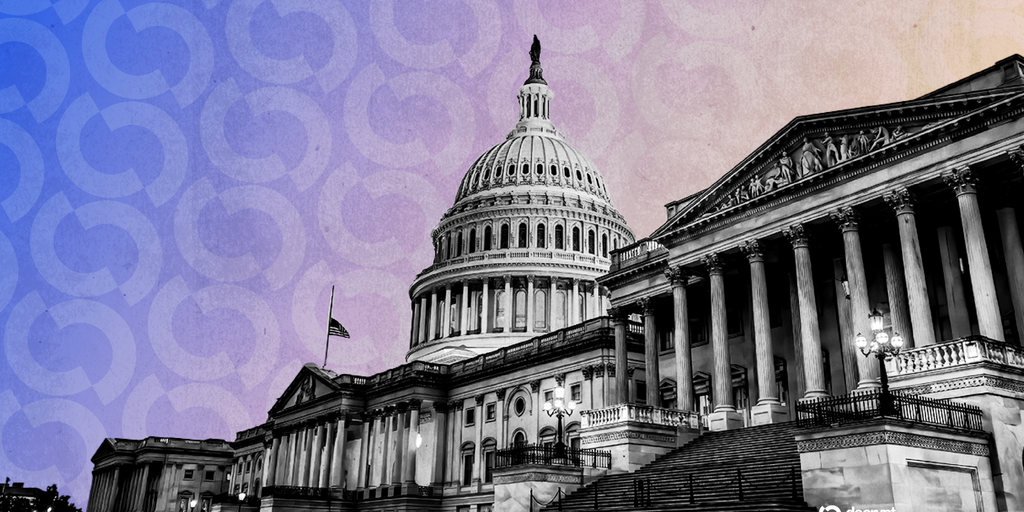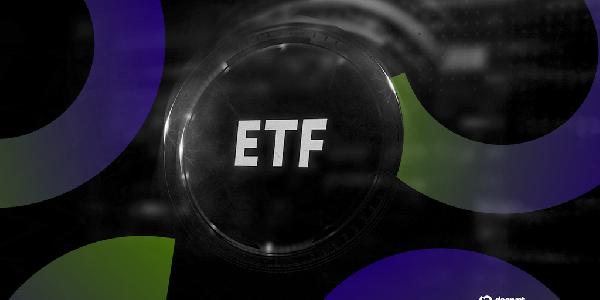DeFi policy experts and industry leaders are coming out swinging against the House’s crypto market structure bill, dubbed the CLARITY Act, just hours before the landmark legislation is set to face a floor vote.
After months of tongue biting, DeFi policy leaders from a spectrum of nonprofits, advocacy groups, and top industry firms—who requested anonymity to speak candidly—told Decrypt they believe the bill as written, while not explicitly hostile to DeFi, is deeply flawed. If signed into law, CLARITY could decimate the novel DeFi sector in America, they say.
The CLARITY Act would “continue the trend of forc[ing] DeFi developers overseas,” one policy expert told Decrypt. Elements of how the bill treats DeFi are “really problematic,” they said, and “impossible” for software developers to comply with—without sacrificing the sector’s core principles.
DeFi, or decentralized finance, refers to a group of software products on blockchain networks that allow for the non-custodial and permissionless trading, borrowing, and lending of crypto assets. A decentralized exchange like Uniswap on the Ethereum network, for example, is the functional equivalent of Coinbase in the DeFi space. The difference is Uniswap allows users to trade any token that exists on the Ethereum blockchain, from crypto wallets they own and control, all while never disclosing personally identifiable information to the exchange.
DeFi experts say the CLARITY Act would change this, forcing Ethereum’s Uniswap, Solana’s Jupiter, and every other decentralized exchange to behave more like Coinbase and other centralized exchanges, and place limits on the tokens that can be traded on their platforms.
In recent weeks, crypto industry heavyweights outside of DeFi have led a cheerleading campaign on Capitol Hill to urge lawmakers to pass CLARITY, which would establish a framework for creating and trading most digital assets in the United States.
DeFi leaders say they have refrained from aiding that push, declining to take meetings with lawmakers about the bill or actively help whip votes for it—because, they say, the bill represents the wants of only a select few in crypto, not the many.
“The big players here are the ones that want this bill,” one DeFi policy leader told Decrypt.
“It pumps one company’s stock price at the expense of leaving developers in the lurch,” the policy leader continued. “This is a bill written by and for the big companies in crypto, which feels antithetical to the industry.”
While DeFi leaders have kept quiet about their concerns with CLARITY for months, they now feel they can no longer afford to stay silent, given the bill’s imminent likelihood of passage.
“We can‘t just say nothing,” one DeFi advocacy group representative told Decrypt. “Because then nobody’s going to know what these issues are.”
DeFi leaders Decrypt spoke to for this story argued the CLARITY Act as written would increase compliance costs and create other complications for small decentralized finance startups while rubber-stamping the business models of industry titans, such as Coinbase or Ripple, which would not face the same disruption.
Once clause buried in the bill, for example, which exempts DeFi messaging systems from its purview—including frontends and interfaces like the Uniswap web app that allow retail users to easily navigate DeFi protocols—but only to the extent that these systems facilitate the trade of “digital commodities.” That term, invented in the CLARITY Act, would likely apply to many popular crypto tokens, but not all; meme coins, for instance, are likely to be deemed “non-commodity collectibles.”
If such language became law, one industry executive told Decrypt, DeFi startups would effectively have to implement a de-facto listing process—akin to how centralized exchanges operate—as opposed to allowing users to freely trade any token on the network.
“Developers of interfaces would be held responsible for monitoring every asset and transaction on the interface to make sure that that asset falls within this very narrow definition of digital commodity,” the executive said. “That’s force-fitting the way we treat centralized entities onto DeFi. It’s technologically infeasible… truly impossible to do.”
DeFi leaders say they flagged concerns about the language for months but were rebuffed by Republican House staffers, who said changes to it were impossible. According to these sources, staffers said the restrictions had been pushed by traditional finance players, presumably because these entrenched players do not want DeFi platforms encroaching on their core businesses, including the derivatives market.
A House Republican aide pushed back on the characterization that such a decision was made at the last minute and told Decrypt that, for years, it has been a “top member priority” that a crypto market structure bill “not create changes to the existing regulatory structure for derivatives markets.”
“This is a statutory exemption from regulation,” the aide said. “It is not a ‘if you‘re not in this exemption, you are going to be regulated’ framework.”
“Statutory exemptions are important, but they are also very blunt instruments, and we also have to rely on, and should rely on, regulators to know the limits of their act as well,” the aide added.
Other issues DeFi policy leaders have with the CLARITY Act include its lack of clear, explicit federal preemption—meaning, language stating that the federal framework supersedes any state laws that might treat crypto or DeFi differently.
Another issue is a lack of full-throated protections for the practice of self-custodying digital assets—aka, operating your own crypto wallet, as opposed to letting a third-party service like Coinbase hold private keys for you. Self-custody is the cornerstone of DeFi, and while the right for individuals to self-custody digital assets is explicitly enshrined in CLARITY, U.S. companies (and thus, DeFi startups) do not receive the same protection.
DeFi leaders say they do not want to sound ungrateful for the numerous DeFi-friendly passages that have been included in the CLARITY Act—including the protection of self-custody for individuals. But they worry the spaces left between these protections could be seized upon by future administrations and regulators who may be hostile to crypto.
“When you leave these gaps, you allow future regulators like Gary Gensler to come in,” one DeFi-focused lobbyist said, referring to former president Joe Biden’s crypto-hostile SEC chair. “All it takes is a lawsuit to cripple a small company.”
With the CLARITY Act set for a vote in the House as soon as tomorrow, and the bill’s language mostly locked in, DeFi policy leaders now say the ship has sailed—and that their best hope of remedying these issues is to lobby the Senate, which is currently drafting its own crypto market structure bill.
A House Republican aide concurred to some degree, telling Decrypt that some perceived concerns with the CLARITY Act, including its lack of explicit federal preemption, are "important issues" that should be “worked through” in the Senate, once CLARITY passes the House.
While many in the crypto industry fear time is already running out in Washington to achieve key legislative goals (hence, the mad dash of D.C.’s ongoing “Crypto Week”), DeFi policy leaders who spoke to Decrypt argued that being hasty, and racing imperfect legislation to President Donald Trump’s desk, could create more problems in the long term.
“We have the time to get this right—we‘ve got three and a half years left of a Trump administration that is going to be friendly,” the DeFi lobbyist said. “We can watch some pitches go by, and we can swing at one that we‘re really gonna hit out of the park.”
Your Email










